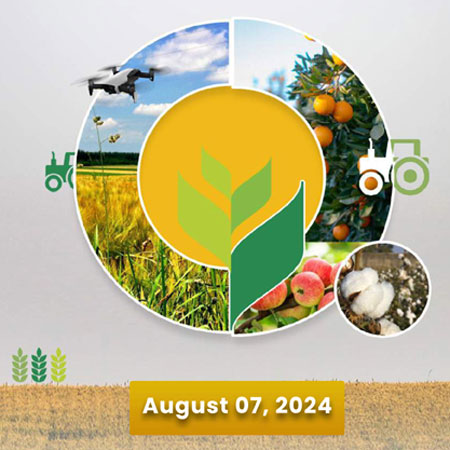
United Nations Convention to Combat Desertification (UNCCD) in Riyadh sheds light on the growing role of Nature-based Solutions (NbS) in addressing climate change and biodiversity crises, while also generating employment opportunities. According to the report, titled Decent Work in Nature-based Solutions 2024, approximately 93-95% of global NbS-related employment is concentrated in the Asia-Pacific region, with India’s Mahatma Gandhi National Rural Employment Guarantee Scheme (MGNREGS) being a major contributor.
The report, which is the second in a series of assessments on the topic, states that more than half of the 59 million people globally employed through NbS initiatives are women. This marks a significant step toward gender equality in environmental and climate resilience work, especially considering the essential role that NbS plays in tackling environmental challenges. The report was produced by a collaborative effort between the International Labour Organization (ILO), the United Nations Environment Programme (UNEP), and the International Union for Conservation of Nature (IUCN) as part of the UN Decade on Ecosystem Restoration.
NbS, as defined by the UN, refers to actions that protect, conserve, restore, and sustainably use natural or modified terrestrial, freshwater, coastal, and marine ecosystems. These solutions are not only crucial for mitigating climate change but also hold the potential to generate millions of decent, sustainable jobs—particularly in low- and middle-income countries. As the report highlights, NbS could address both climate and biodiversity crises while simultaneously promoting social and economic well-being.
The Rise of NbS in Global Policy
The report builds on the first instalment released in 2022 at COP15, which aimed to bridge knowledge gaps about how NbS can transition the world toward a green economy. It stressed the importance of NbS for creating jobs, especially for vulnerable and marginalised groups. Since then, significant progress has been made in the recognition of NbS. It has been integrated into the frameworks of key global environmental agreements, such as the Rio Conventions and the United Nations Framework Convention on Climate Change (UNFCCC). Most recently, NbS was included in the work program adopted during the 28th COP to the UNFCCC in 2023.
Despite these advancements, however, the report stresses that investments in NbS remain inadequate, with only 0.3% of global GDP currently directed toward such solutions. Notably, though regions like the European Union and North America have a higher percentage of full-time employment (FTEs) in NbS, the largest number of workers—about 95% of the total—are in India, particularly through the MGNREGS.
The Potential of NbS to Generate Jobs and Promote Gender Equality
The 2024 report also underscores the strong connection between NbS and job creation, particularly in rural areas and low-income communities. While it estimates that just 1.8% of global employment is tied to NbS, the figure reflects a significant contribution from public employment programs (PEPs), such as MGNREGS, which offer part-time, project-based work. When measured in terms of full-time employment (FTE), public employment schemes account for 85-87% of global NbS jobs.
More importantly, the report notes that 57% of global expenditure on NbS occurs in high-income countries, yet Asia-Pacific countries—despite contributing only 44% of global NbS expenditure—are home to the vast majority of the workers. This demonstrates that low- and middle-income countries are carrying a large share of the work burden, despite lower financial investments in these regions.
One of the more encouraging findings is that over half of the workers in NbS-related jobs are women. As the report points out, this offers a crucial opportunity to address gender disparities and empower women, especially in rural and marginalised communities. By investing in skills development and fostering participatory decision-making, NbS can also help improve working conditions and promote more inclusive, fair employment practices.
The Need for Skill Development
One of the key challenges identified in the report is the lack of adequate skills and training for those involved in NbS. A global survey cited in the report revealed that 66% of respondents face significant skill-related challenges in implementing NbS projects. While countries like Canada, Spain, Scotland, and New Zealand have made strides in developing policies for skill-building in NbS sectors, many others still lack the necessary frameworks or investments.
This skills gap is particularly problematic in low-income countries, where the workforce is often not adequately prepared to handle the complexities of climate adaptation and ecosystem restoration. As the demand for NbS continues to grow, the need for specialised knowledge in areas such as geospatial analysis, environmental economics, and artificial intelligence (AI) will increase. Incorporating local and indigenous knowledge is also crucial for ensuring that NbS solutions are both effective and culturally relevant.
Moving Forward: Policy Recommendations
The report concludes with several recommendations to scale up NbS and maximize their potential. First and foremost, it advocates for stronger policy frameworks that support the integration of NbS into national development plans. It also calls for investments in skill development to equip the workforce with the expertise needed for higher-skilled roles in the NbS sector. Strengthening labor rights, promoting gender equality, and ensuring inclusivity in NbS employment are also critical to achieving long-term success.
Data collection and monitoring are key components of informed decision-making, the report suggests. By improving the quality of data on NbS implementation, governments and organisations can better track progress and allocate resources more effectively. Finally, addressing the funding gap for NbS, particularly in low-income countries, is essential for realising the full potential of these solutions.
While the world has made significant strides in recognising the importance of NbS for both environmental and social sustainability, much work remains to be done. With continued investment, policy development, and targeted skill-building, NbS can become a powerful tool in the fight against climate change and biodiversity loss, while simultaneously fostering decent work and promoting more inclusive, resilient societies.










